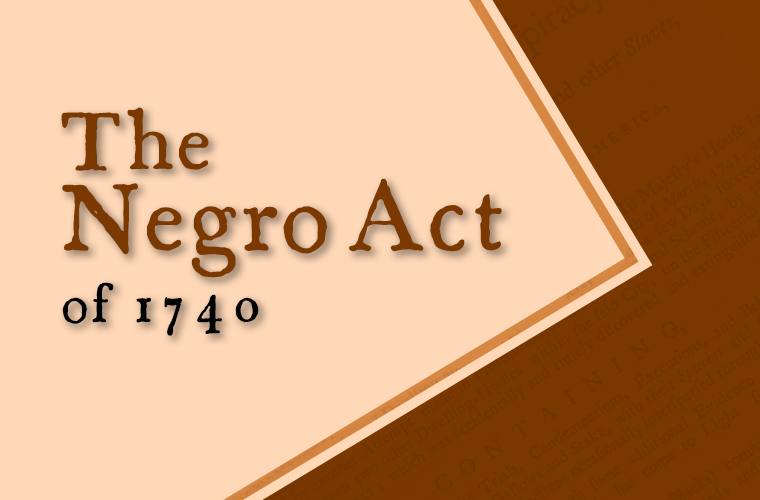The Negro Act of 1740 was a law passed by the South Carolina colonial assembly in response to the Stono Rebellion, which had occurred the previous year. The law, also known as the “Act for the better ordering and Governing of Negroes and Other Slaves in this Province,” was designed to strengthen the control of slaves and reinforce the system of slavery in the colony.
The Negro Act of 1740 contained a number of provisions that restricted the lives of slaves in South Carolina. One of the most significant provisions was the requirement that all slaves must be baptized and become members of the Anglican Church. This was intended to promote the Christianization of slaves, which was seen as a way to make them more obedient and docile. The act also prohibited slaves from holding any religious meetings without the presence of a white person, and it prohibited any non-Anglican minister from preaching to slaves.
The act also placed restrictions on the movements of slaves. They were not allowed to assemble in groups of more than five unless they were accompanied by a white person. They were not allowed to leave their plantation without a written pass from their owner or overseer, and anyone caught traveling without a pass could be punished with up to 40 lashes. The law also prohibited slaves from carrying firearms or other weapons, except with the permission of their owner.
Additionally, the act prohibited slaves from learning to read or write, as it was believed that education would make them more likely to rebel. Anyone caught teaching a slave to read or write could be fined or imprisoned. The law also gave slave owners the right to use “moderate correction” to discipline their slaves, which often involved physical punishment. The Negro Act of 1740 reinforced the power dynamic between slave owners and slaves and made it more difficult for slaves to resist their oppression. The law remained in effect in South Carolina until the end of the Civil War and the abolition of slavery.

